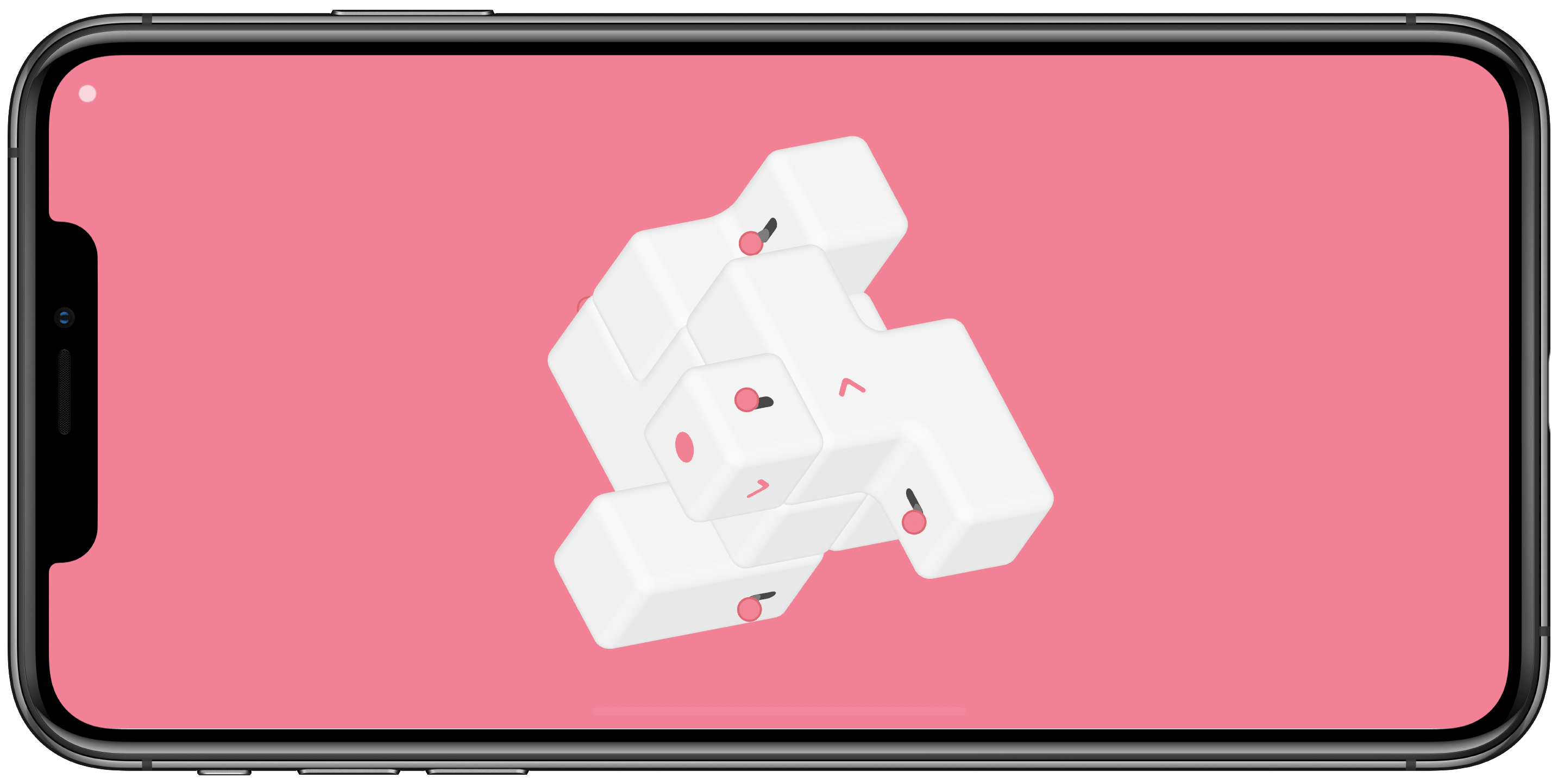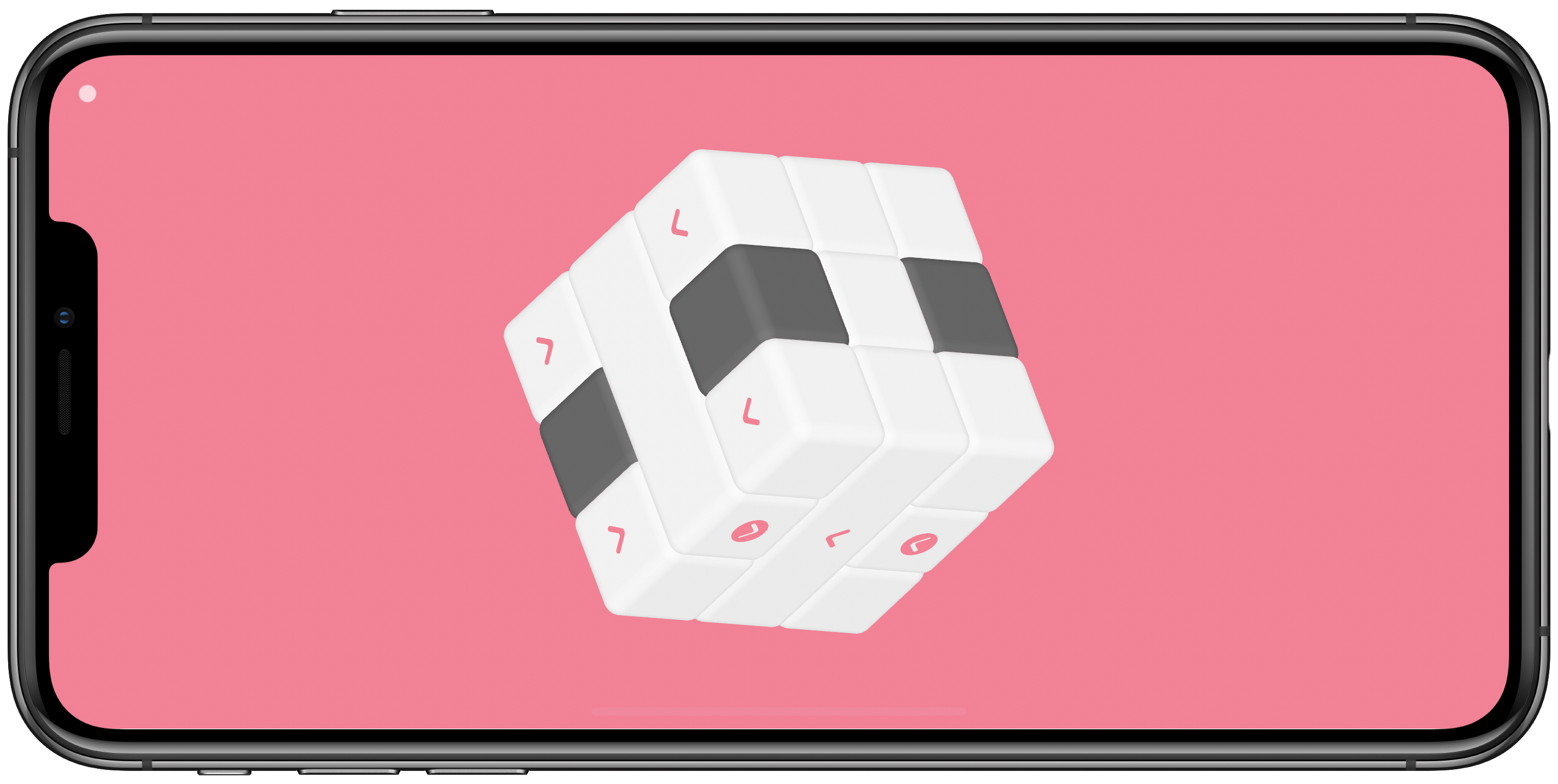NABOKI, a brand new puzzle game by Maciej Targoni, is a masterpiece of mobile game design. Targoni is the developer of klocki, which I previously reviewed, and several other games that feature a similar minimalist aesthetic that I love.
I started NABOKI for the first time on a recent early-morning flight to California. I couldn’t have picked a better game to make my uncomfortable surroundings melt into the background.
The game has no tutorial and virtually no UI. Instead, NABOKI relies on exploration and the player’s curiosity to propel it forward. Coupled with a soothing nature-inspired soundtrack, NABOKI creates a calming environment of thoughtful concentration that’s a great way to relax.
NABOKI opens with a single white cube with rounded edges and a red arrow-like character on one side. Swiping on the screen spins the cube in three dimensions. Tapping on the cube provided immediate audio feedback, playing one tone when I tapped a blank side of the cube and another when I tapped the side with the arrow, causing the cube to launch itself offscreen.
The early levels of the game introduce the basic concept of tapping the arrow side of cubes to clear them from the screen and rotating the puzzle to consider your options from all angles, as you would a Rubik’s cube. As the puzzles become more complex, featuring blocks of several contiguous cubes, you need to clear pieces in a particular order to clear a path for others, and often to expose the arrows you need to reach before they can be cleared.
After several more levels, NABOKI begins to introduce different behaviors to cubes. There are circles that rotate cubes, switches that shift cubes and blocks of cubes, unclearable blocks, and blocks with patterns that have to be matched to clear them, for instance. Each puzzle builds on the new types of blocks introduced, combining them in clever ways that amp up the difficulty gradually in a way that isn’t frustrating.
Each type of cube also provides different audio feedback, which I enjoy, but I’d like to see haptic feedback added to interactions. NABOKI is the kind of game that I’m far more likely to play on my iPhone, and I think haptic feedback would draw players into the game’s world even more quickly and deeply.
NABOKI should be played with headphones because the soundtrack is a fantastic synthesis of instrumentation and sounds from nature. The soundtrack reminds me a little of the Brain.fm music. It’s a wonderful complement to a puzzle game like NABOKI, that creates a relaxed, contemplative environment in which it’s easy to lose yourself.
The single dot in the top-left corner reveals navigation buttons to replay solved puzzles and a button to turn the soundtrack on and off. There’s no scoring, leaderboards, or other competitive aspect of NABOKI. It’s just you against the puzzles.
Crammed into a narrow seat with a tray that was too small to use my iPad Pro, and with no WiFi, NABOKI was the perfect way to pass a big chunk of my weekend flight. A few levels are also a great way to unwind after a long day. I highly recommend NABOKI to anyone who’s a fan of puzzle games.



